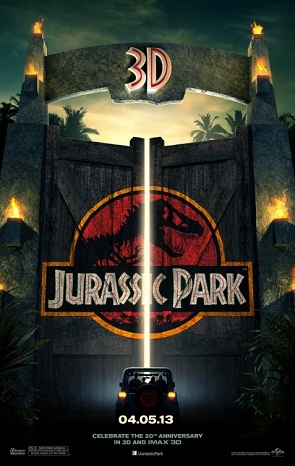Timberlake: Play smart with the environment, don’t play God

The new 3D edition of “Jurassic Park” may leave people talking about the reality of scientists bringing extinct animals back to life, but columnist Timberlake doesn’t think it’s a good idea.
March 28, 2013
Oh how we humans like to be masters of our environment, controllers of life. If we can do something, we do it. Though it may sound cliche, just because we can do something, should we?
Within the last couple of decades our knowledge of DNA has increased tremendously. Today, we are at the point where we can nearly bring back that which does not exist.
Like extinct species, for example.
With “Jurassic Park 3D” coming out, we can expect to see more entertained discussion of what it means to bring back extinct animals, not necessarily just for viewing pleasure. A scenario like “Jurassic Park” is not possible, as 65 million years is far too long to get a good DNA sample of any dinosaur, but it’s still interesting to contemplate.
Teams have attempted “de-extinction” before, and nearly succeeded. A team of French and Spanish scientists brought back an extinct Pyrenean ibex (goat) in 2003, only for it to die just minutes after birth and therefore go extinct again. The Pyrenean ibex only recently went extinct, in the late 1990s, with the last one found dead under a tree with a radio tracker around its neck. This animal went extinct because it was over-hunted.
Scientists all over the world are working toward turning science-fiction into science-fact. Is it right, though?
Earth is its own habitat and has its own life cycle. In human years, Earth would probably be in its late 40s and have much to offer in resources and knowledge. Over 98 percent of all species to have ever existed have gone extinct — billions of species. Who are we to say that we should “save the animals,” as the endangered species activists so loudly exclaim? And does it really matter if we bring back extinct species?
In the long run, no, it doesn’t remotely matter.
The real question is whether or not humans have had a major influence on the rate of extinction. I would argue we have had a massive influence in the last few hundred years.
You have heard it time and time again, drilled into your heads, that we are taking vital resources from major habitats of the world that end up hurting and removing species, be it altering the predator vs. prey ratios or removing habitats. I don’t need to tell you about humans damaging our lonely planet when you’re exposed to it everyday.
It’s one thing to try to bring back an animal we recently hunted extinct, and another thing to bring back animals like wooly mammoths, saber-toothed tigers and mastodons. These three species have been extinct from four to 12 thousand years — long before humans were a global threat.
Bringing back a few extinct or endangered animals that disappeared due to humans probably won’t help much from an ecological point, if at all. And bringing back extinct animals from 10,000 years ago is just scientific fun. Good luck trying to throw them into an unadapted environment which they haven’t been a part of for millennia.
Taking animals out of extinction for research’s sake is fine and dandy. It might, after all, lead to the discovery of many new and interesting things. Taking animals out of extinction to try and solve the world of problems that humans have created is a lost cause. And doing so just so we can have an “extinct exhibit” at the zoo is moronic and beyond egocentric.
The only way we can help our planet is to bring balance to the environment by the way we use it. Species come and go the same way we are born and die, and the only thing we can do is be a part of that cycle, naturally.
Staying ahead of that cycle is preserving the existence of our own species, for now. But there needs to be a balance because whether we like it or not, no matter how ahead we are, we’re dependent on what lives and grows on Earth.
Some call de-extinction “playing God.” Paleontologist Michael Archer at the University of New South Wales says we’ve been playing God ever since we drove animals to extinction.
Regardless of whether we’re “playing God” or not, humans need to stop thinking that there will always be a remedial fix to the problems we create and instead focus on preventing problems from even occurring in the first place. “That men do not learn very much from the lessons of history is the most important of all the lessons of history.”
Ian Timberlake is a senior in aerospace engineering from Chicago, Illinois.






